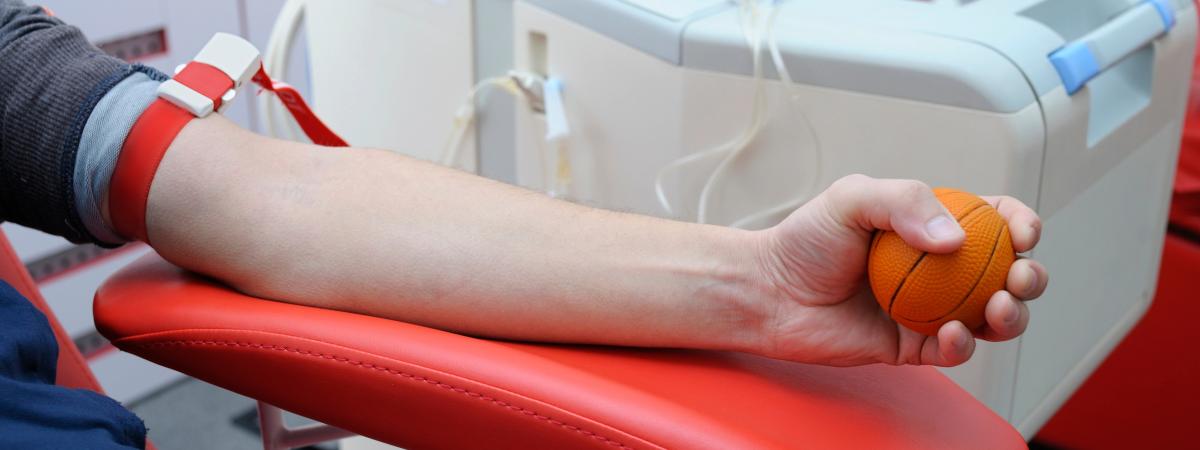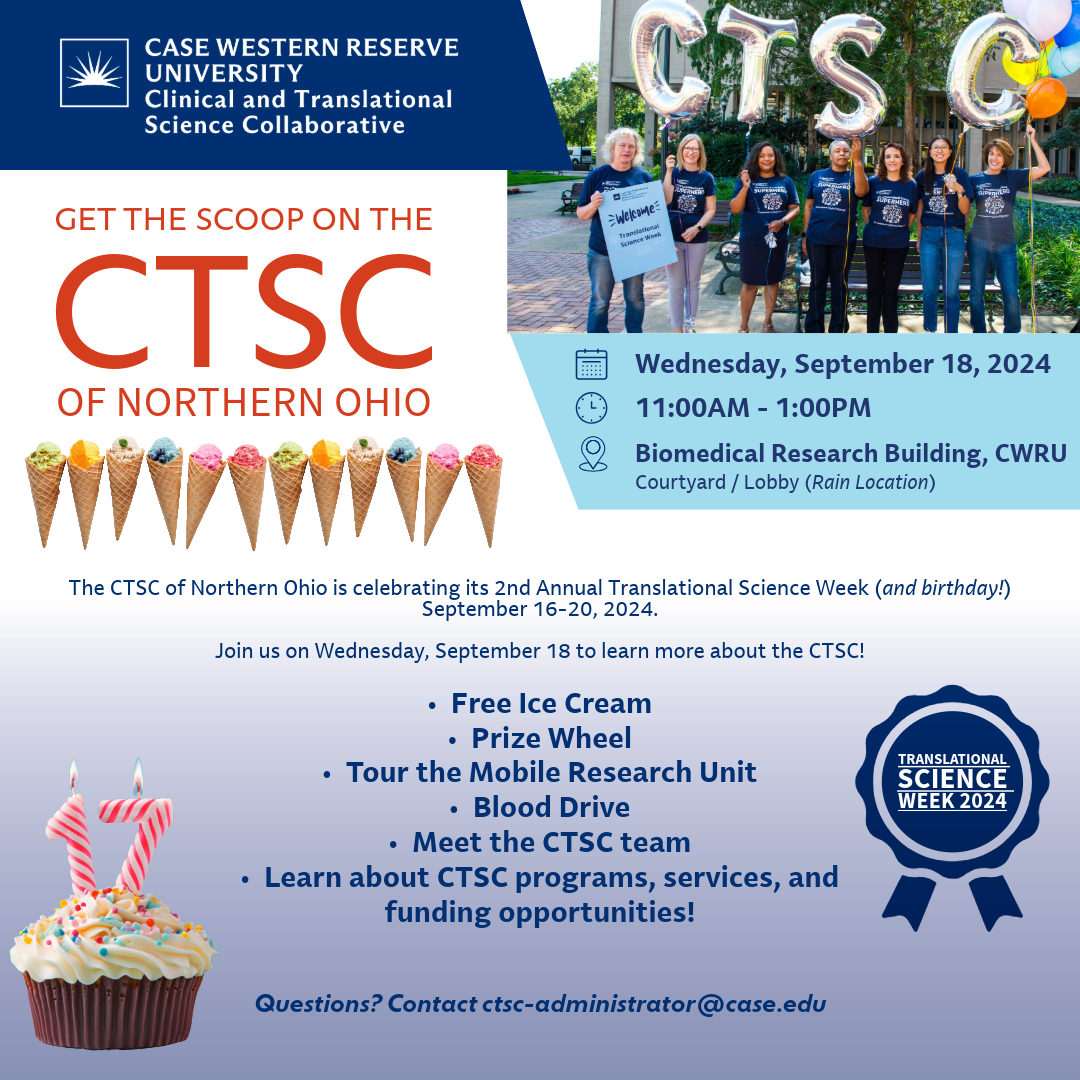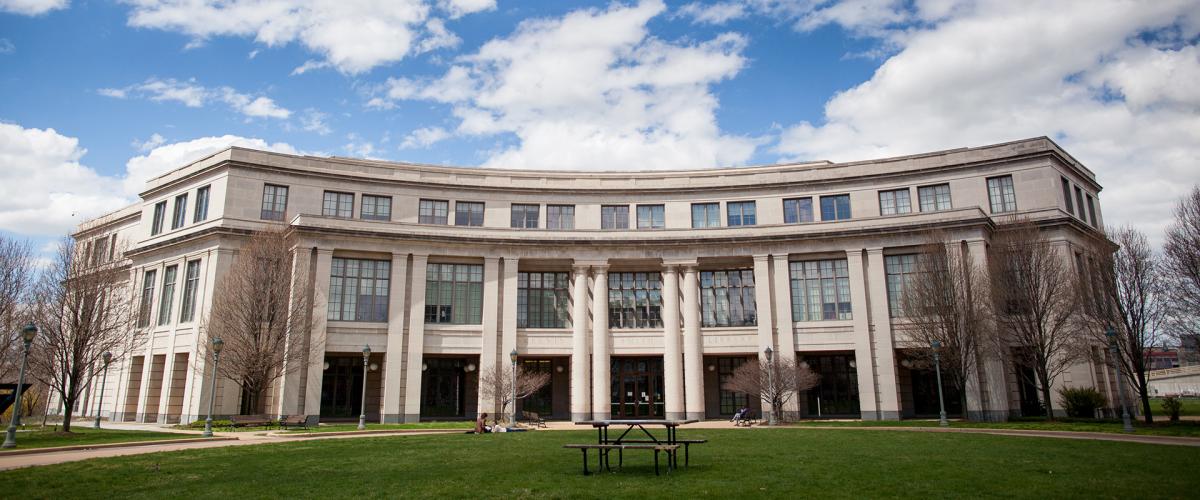According to the American Red Cross, a single blood donation can save up to three lives. The CTSC of Northern Ohio aims to fill 51 donor spots for its first blood drive during Sickle Cell Awareness Month (September) on Wednesday, September 18 from 9AM-3PM at Case Western Reserve University in the Biomedical Research Building (BRB) lobby.
Sickle cell disease is the most common inherited blood disorder in the U.S. (NIH National Heart, Lung, and Blood Institute) One out of every 365 Black or African American people are born with sickle cell disease. (Centers for Disease Control and Prevention) Blood transfusions are a first-line therapy for many sickle cell complications. (National Institutes of Health)
Umut Gurkan, PhD, a sickle cell researcher, biomedical engineering professor at Case Western Reserve University, and CTSC Pilot Module Lead and former annual pilot awardee, knows exactly how important it is to do something about diseases like sickle cell where we, “[...] know what causes the disease and we know how to diagnose it.” Dr. Gurkan and his team invented a portable, low-cost, point-of-care diagnostic device that quickly detects sickle cell disease in newborns using a droplet of blood. One novelty of the invention is that it can be used in remote, underserved communities worldwide. Dr. Gurkan also runs a company, BioChip Labs Inc., that provides in vitro diagnostic tests to support preclinical development and clinical trials of emerging therapies in sickle cell disease, including cell and gene therapies that have the promise to cure the disease.
Caption: Dr. Gurkan training healthcare workers and laboratory personnel in Abuja, Nigeria, on sickle cell disease screening technology invented in Dr. Gurkan’s laboratory at Case Western Reserve University.
Our local expertise and impact is not only worldwide, but also exemplifies translational science principles of boundary-crossing partnerships and cross-disciplinary team science. Researchers at University Hospitals are supported by forward-thinking advocates, with legal backgrounds, who negotiated for sickle cell clinical trial participants to have fertility treatment included in their participant compensation. "The care required for sickle cell and gene therapy clinical trial participants is complex, not only from a clinical standpoint, but also from a contracting and operations perspective. The cutting edge treatments have, unfortunately, outpaced the law. There is a long journey ahead to where we want to be, but the progress made even in just the last four years is astronomical and full of hope,” explained Kristin Leuchtag, JD, Department Manager, University Hospitals Rainbow Babies and Children’s Pediatric Hematology Oncology Clinical Trials Unit.
Help us save up to 153 lives. Reserve a time to donate here. Hint: If you’re on campus between 11AM-1PM, you can meet the CTSC administrative team and secure a scoop of ice cream!
–
If you’re curious about what our partner institutions are doing to improve health outcomes for patients with sickle cell disease:
- Visit University Hospitals Seidman Cancer Center’s Adult Sickle Cell Disease Clinic to review research opportunities
- Read about MetroHealth’s at-home sickle cell disease care program
- Learn about how Cleveland Clinic treats Sickle Cell Disease
- Review resources through The Sickle Cell Project of Northwest Ohio



.png)
.png)



